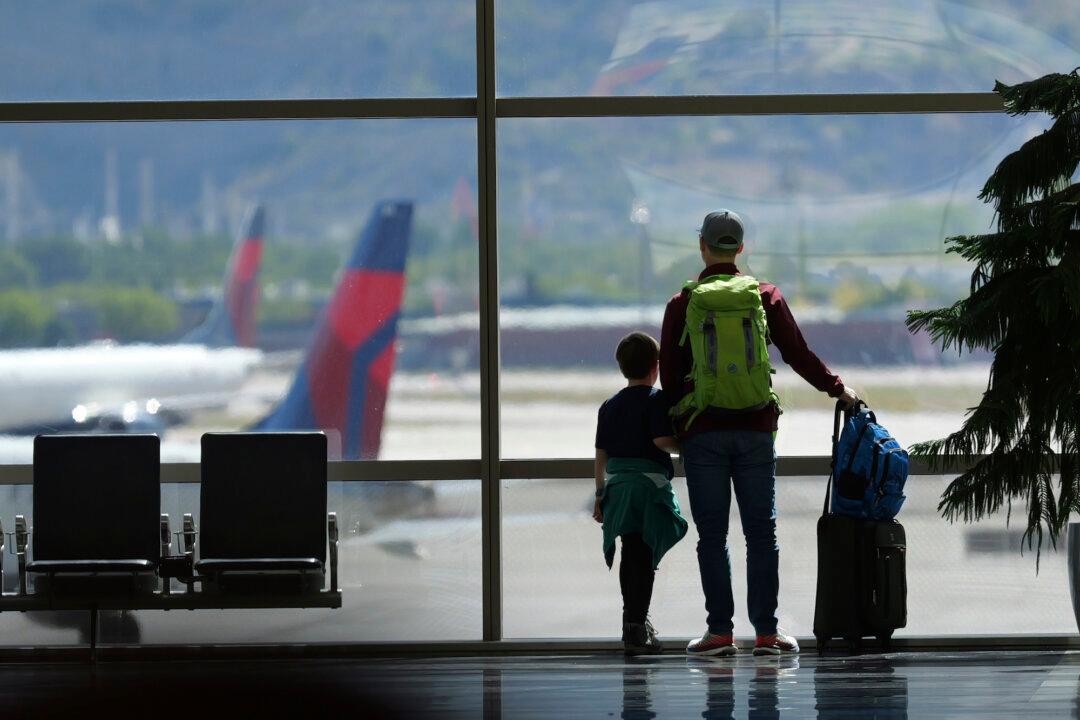The federal government is seeking to prohibit airlines from charging parents extra to sit next to their children on flights, as part of its effort to tackle what it calls “junk fees” across industries.
Under a rule proposed on Aug. 1 by the U.S. Department of Transportation (DOT), airlines would be required to seat children 13 or younger next to their parent or accompanying adult for free.





